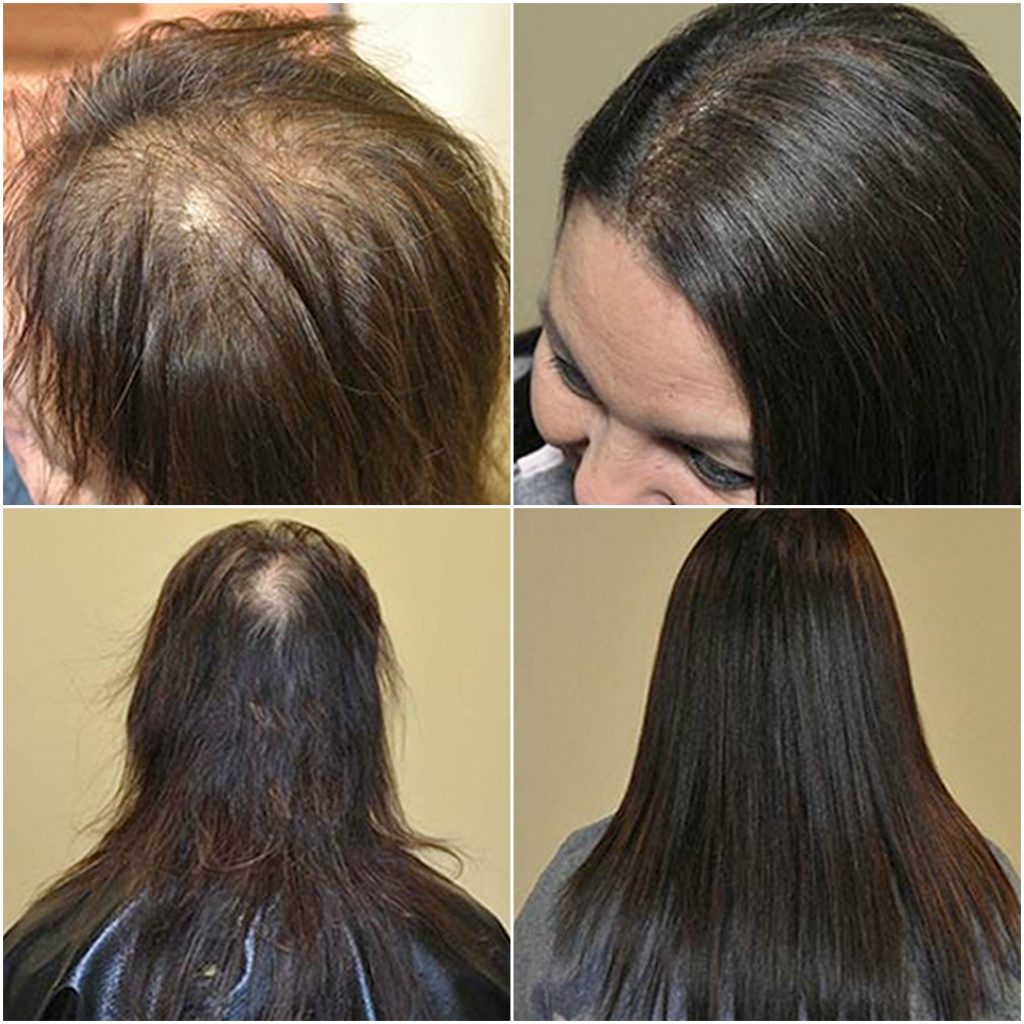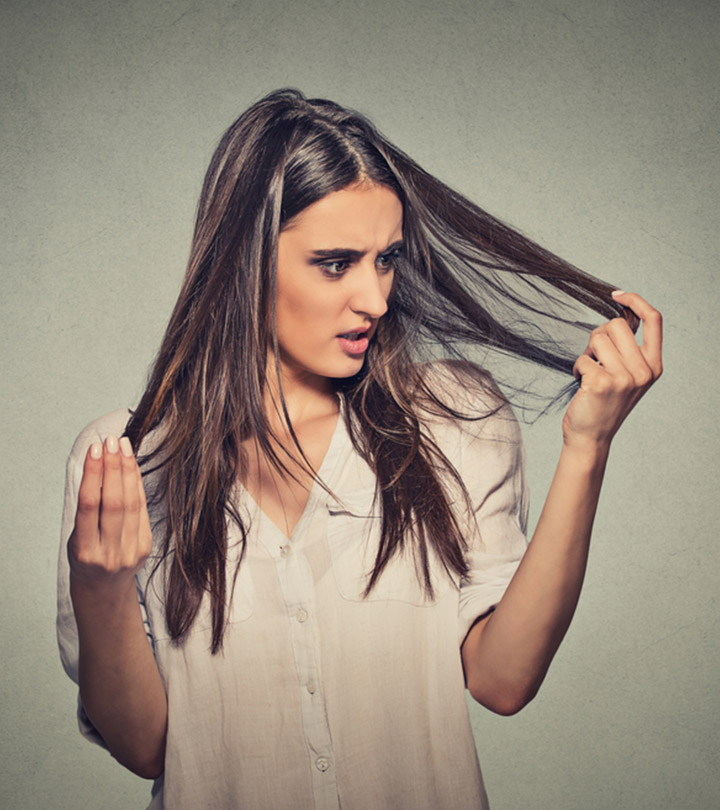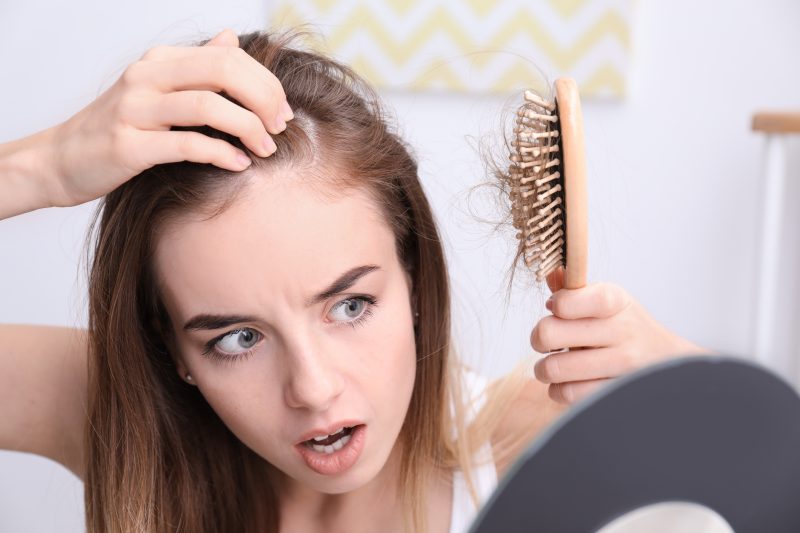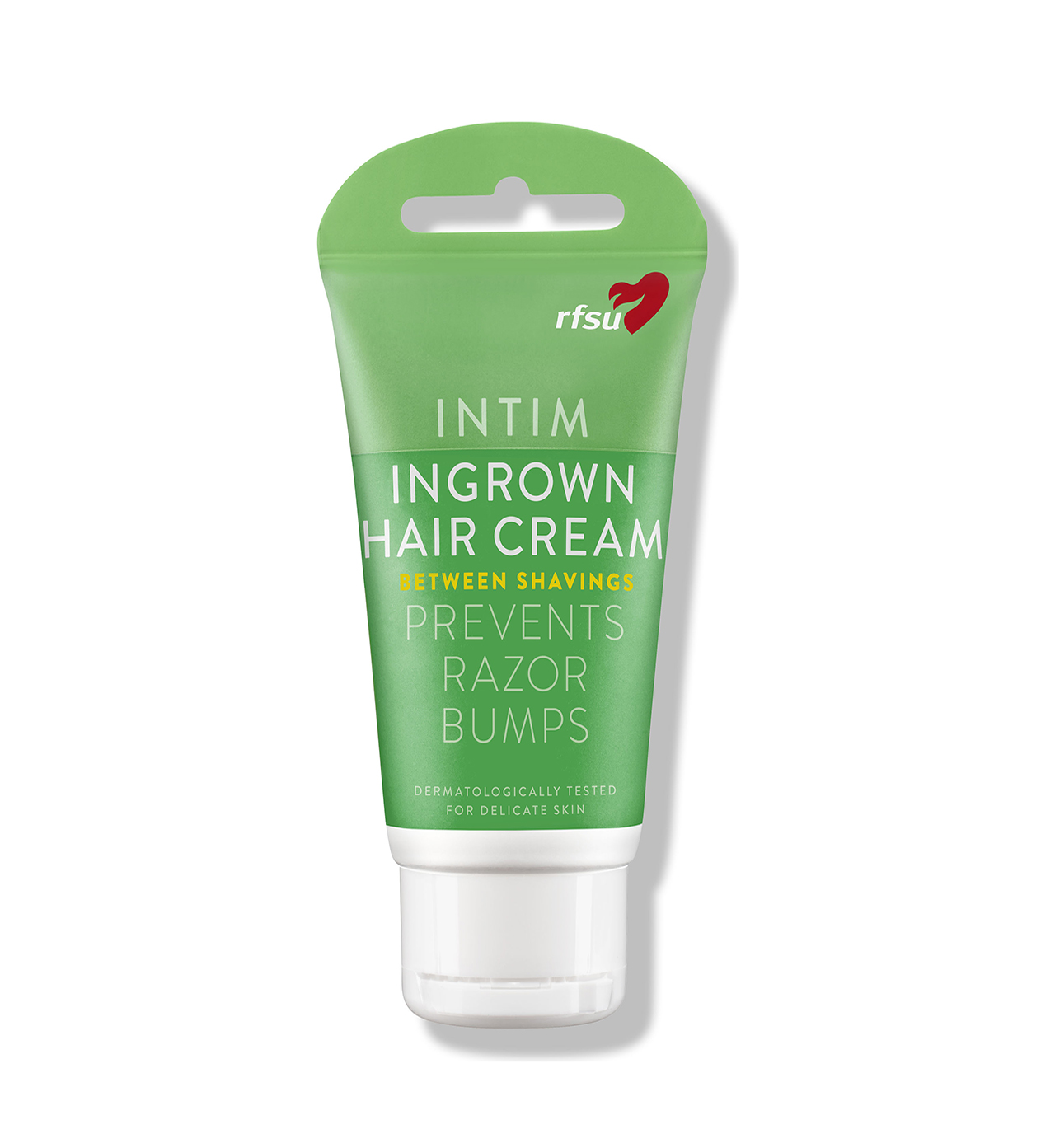Table Of Content

Also, when women stop hormone replacement medication, they should expect a fair amount of hair loss. Applying conditioner after shampooing your hair is essential to maintaining healthy locks. Conditioner is a vital hair care step that adds moisture to help replenish hair’s sheen and natural oils lost during shampooing. And volumizers work like a splint to strengthen each strand of hair, plumping it to provide more volume per strand. Finally, keep in mind that the same healthy habits recommended for maintaining your physical health will also help your hair.
What is hair loss in women?
It can help to address the physical aspects of hair loss. Try to find out everything you can about hair loss and the treatment options available to you. These conditions should be ruled out as part of the diagnostic process for menopausal hair loss. By definition, menopause occurs when menstrual periods have stopped for at least 12 months. However, the hormonal drops that cause hair loss can begin years before menopause is official (perimenopause) and last long after the change is complete (postmenopause).

How is hair loss diagnosed?
If you lose significant hair, it’s important to protect your scalp. Wear a hat, scarf or other head covering when you’re in the sun, and apply sunscreen daily. Losing your hair — whether the hair loss is temporary or permanent — can be emotionally difficult for many people. Some types of hair loss can eventually lead to baldness. Left untreated, a sexually transmitted infection (STI) can lead to hair loss. Left untreated, syphilis can cause patchy hair loss on the scalp, eyebrows, beard, and elsewhere.
Why Is Exercise Important for Menopausal Hair Loss?
At some point, hair follicles stop growing hair, which causes the hair on our scalp to thin. See your doctor if you are distressed by persistent hair loss in you or your child and want to pursue treatment. For women who are experiencing a receding hairline (frontal fibrosing alopecia), talk with your doctor about early treatment to avoid significant permanent baldness. Alopecia is an autoimmune condition often seen with thyroid conditions.
A variety of treatments have been developed to help regrow hair and thicken existing hair on patients with alopecia, dermatologists say. Their effectiveness largely depends upon what type of alopecia you have and how quickly you start treatment. By contrast, scarring alopecia, another autoimmune disease that causes hair loss, is often accompanied by itchiness, tenderness and scaling of the scalp. Scarring alopecia is the most devastating type of hair loss, Mirmirani says, because it permanently destroys the hair follicles.
Once your dermatologist finds the cause(s), your dermatologist will tell you whether treatment is recommended. Sometimes, your hair will regrow on its own, making treatment unnecessary. This might be the case if someone has more than one cause. For example, a woman may have had a baby a few months ago, and this may be causing obvious hair shedding.
Can GLP-1 drugs Ozempic and Wegovy cause suicidal ideation, hair loss? - Medical News Today
Can GLP-1 drugs Ozempic and Wegovy cause suicidal ideation, hair loss?.
Posted: Mon, 08 Jan 2024 08:00:00 GMT [source]
If a person has unexpected and rapid hair loss, they should seek medical advice. It is often acute, which means it occurs suddenly and for a limited time, but it can also be chronic, or long-term. It can happen several months after a stressful experience. In the type of patchy hair loss known as alopecia areata, hair loss occurs suddenly and usually starts with one or more circular bald patches that may overlap.
The doctor might reduce the dosage or switch the person to a different medication. If a person has anagen effluvium due to undergoing chemotherapy, cooling the scalp during the procedure may help. Hair will often grow back within 3–6 months after stopping chemotherapy. If a doctor suspects a medication is causing hair loss, they may prescribe a lower dose or switch medications. It is natural for a certain amount of hair to shed every day. However, some individuals will experience further hair loss.
Understanding how these conditions cause hair loss involves understanding how hair grows. If your child is experiencing hair loss, it’s important to remind them that losing their hair doesn’t change the person they are and doesn’t mean anything is wrong with them. You can let them know that you’re ready to listen if they want to talk about it. If your child is experiencing hair loss, it’s a good idea to visit a doctor.
In some cases, hair loss may be reversible with proper treatment. A doctor may be able to diagnose the cause of your hair loss with a physical examination and by examining your medical history. They may do a pull test to see how many hairs come out, and examine your scalp with a microscope.
Menopause can also lead to uncomfortable systemic symptoms such as night sweats, weight gain, and vaginal dryness, which may raise your overall stress levels. Below, we’ll explore common causes of hair loss in women and the treatment options available. Baldness (androgenic alopecia) is the most common type of hair loss. It affects an estimated 80 million individuals in the U.S.
But less commonly, some people start losing their hair as teenagers. Your healthcare provider may run additional tests to rule out other potential reasons for the hair loss. Laser treatments, also known as light therapy, work by applying low-intensity light to the scalp, triggering a reaction that signals new hair to grow. It’s thought that light increases the number of hair follicles and increases hair strength. Topical over-the-counter minoxidil (also known as Rogaine) has been shown to help regrow hair or slow down hair loss. Some patients also find the oral supplements biotin or Viviscal to be helpful.
Here are some questions people often ask about thinning hair. A number of home remedies may improve hair growth, although not all of them have scientific backing. In chronic cases, shedding may continue, but a person will usually retain a reasonable head of hair. It affects around 50 million males and 30 million females in the United States. Approximately half of all people will experience it at some point.
Researchers believe that cortisol, a stress hormone released by your adrenal glands, may disrupt your hair growth cycle. Shampoos for thinning hair or hair loss also contain vitamins and amino acids to promote a healthier scalp. To get the best results, use these products as directed. Still, there’s not enough evidence that essential oils can treat baldness or thinning hair.
This April marks Stress Awareness month in the US, a calendar moment designed to raise awareness of the pervasive and damaging nature of stress. Kelp and other kinds of seaweed are high in iodine and may worsen symptoms, including hair loss. Certain multivitamins and cough syrups may also contain iodine, so read labels carefully. Hair loss can be caused by stress or anxiety in anyone, namely teenagers. It may cause poor self-esteem and have a big effect on confidence — especially at an age when many people start dating and learning who they are. The best treatment option for your type of hair loss depends on the cause.
A dermatologist can also help find a suitable treatment option. The doctor may send hair or scalp samples to a laboratory for further testing. They may also order blood tests to rule out an underlying condition. Doctors can often diagnose the cause of thinning hair by looking at the pattern of hair loss. Performing a gentle scalp massage using essential oils could provide extra benefits. While you may be focused on reversing thinning hair, it’s also important to try to practice good hair care techniques.



















